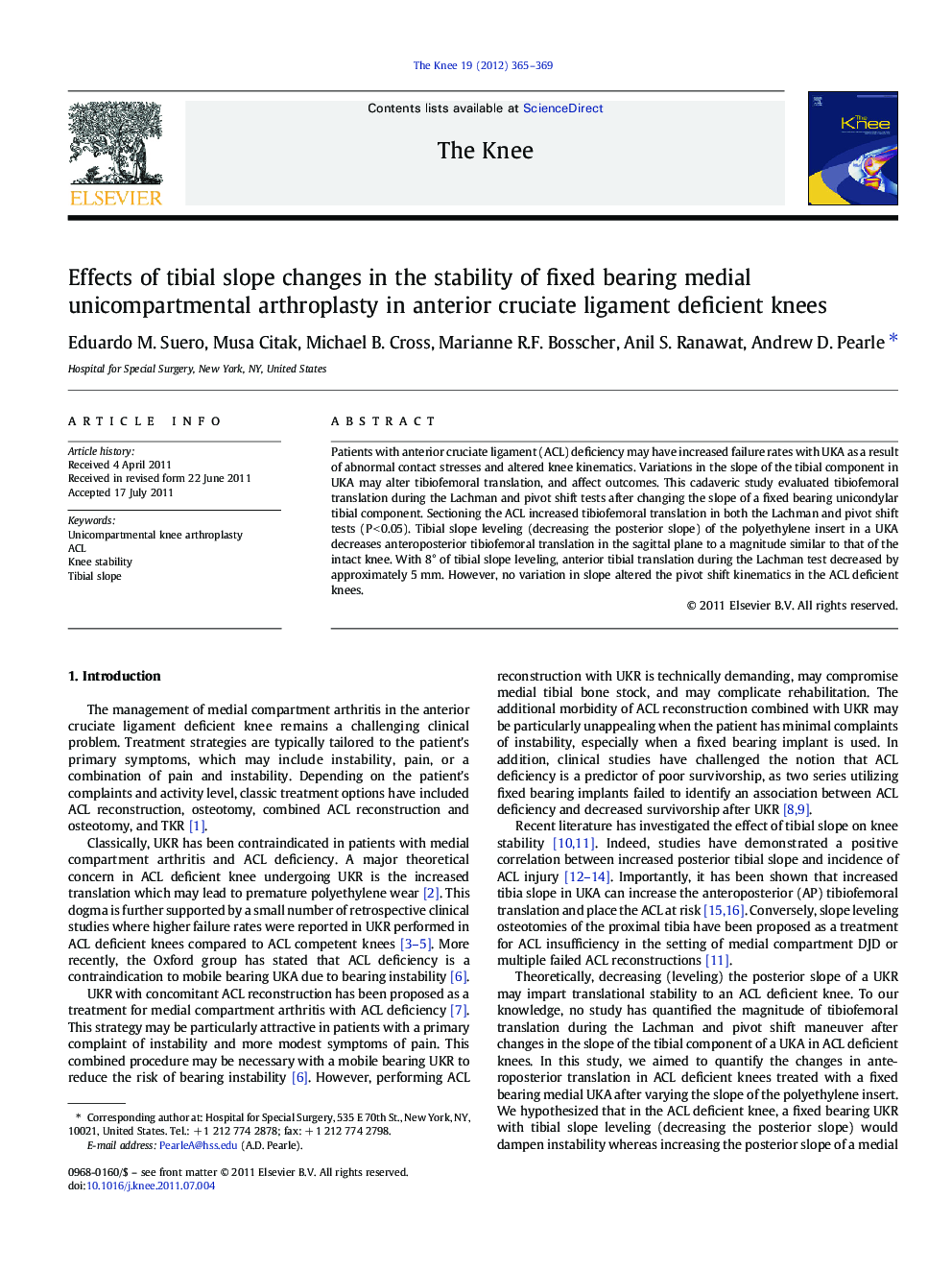| Article ID | Journal | Published Year | Pages | File Type |
|---|---|---|---|---|
| 6211463 | The Knee | 2012 | 5 Pages |
Patients with anterior cruciate ligament (ACL) deficiency may have increased failure rates with UKA as a result of abnormal contact stresses and altered knee kinematics. Variations in the slope of the tibial component in UKA may alter tibiofemoral translation, and affect outcomes. This cadaveric study evaluated tibiofemoral translation during the Lachman and pivot shift tests after changing the slope of a fixed bearing unicondylar tibial component. Sectioning the ACL increased tibiofemoral translation in both the Lachman and pivot shift tests (P < 0.05). Tibial slope leveling (decreasing the posterior slope) of the polyethylene insert in a UKA decreases anteroposterior tibiofemoral translation in the sagittal plane to a magnitude similar to that of the intact knee. With 8° of tibial slope leveling, anterior tibial translation during the Lachman test decreased by approximately 5 mm. However, no variation in slope altered the pivot shift kinematics in the ACL deficient knees.
